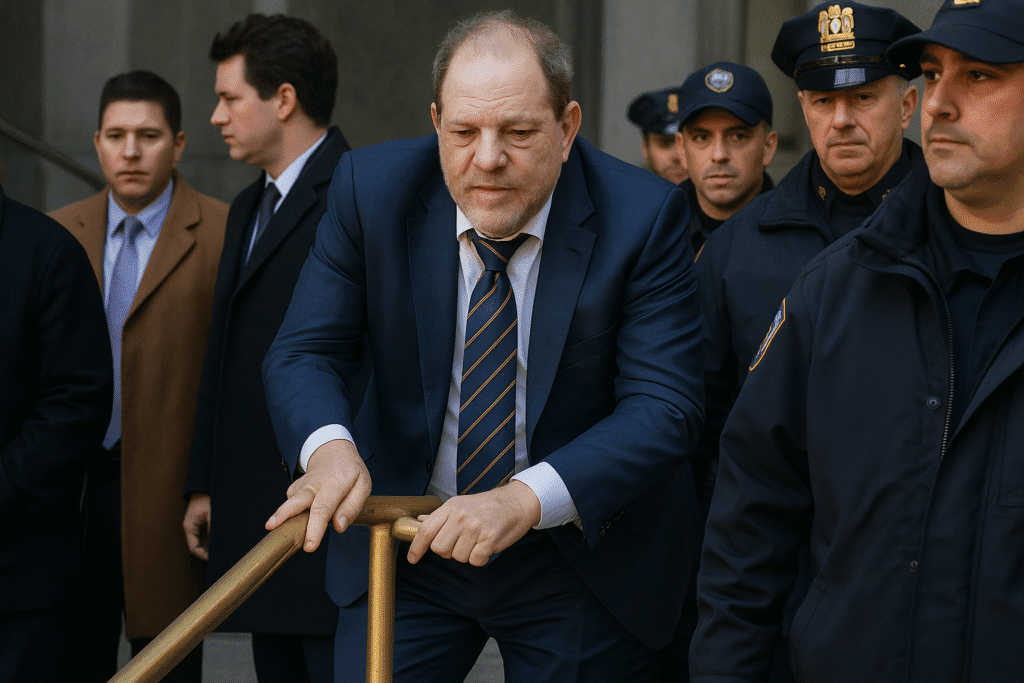In a major legal development, the New York Court of Appeals has overturned Harvey Weinstein’s 2020 conviction on charges of rape and sexual assault. The court ruled that the film producer, once one of Hollywood’s most influential figures, was entitled to a new trial, setting the stage for further legal battles. This decision has ignited widespread discussion surrounding the legal complexities of high-profile cases, as well as the broader impact of the #MeToo movement on the justice system.
Weinstein’s conviction had been a significant moment in the fight against sexual misconduct, especially in the entertainment industry. The case became a focal point for the #MeToo movement, which has raised awareness of the prevalence of sexual harassment and assault, especially in workplaces where power dynamics often silence victims. However, with the recent ruling, the questions about the integrity of the trial and fairness of the legal process have come to the forefront once again.
The Court of Appeals determined that there had been certain legal errors during the trial that impacted the fairness of the proceedings. One of the key issues was the way certain testimony was introduced and how the jury was influenced by that testimony, which, according to the court, may have led to an unfair verdict. As a result, the court concluded that Weinstein deserves a new trial to ensure justice is served, with proper legal procedures followed.
This ruling has sparked a broader conversation about the legal challenges that arise in cases involving celebrities and powerful individuals. High-profile trials often attract intense media attention, which can sometimes create an atmosphere of bias. The #MeToo movement has undoubtedly changed the landscape of how such cases are viewed, with many advocating for victims’ voices to be heard. Yet, the overturning of Weinstein’s conviction calls into question whether the legal process was able to maintain impartiality in this particular case.
Legal experts have weighed in on the decision, emphasizing the complexity of the legal system, especially when it comes to ensuring a fair trial for individuals involved in high-profile cases. Sarah Johnson, a legal analyst, commented, “This ruling underscores the complexity of legal proceedings in high-profile cases,” noting that while the legal process must be fair and impartial, it is also crucial to maintain the integrity of the justice system even in the face of intense public scrutiny.
The reversal of Weinstein’s conviction serves as a reminder that the legal process is not always straightforward and can be subject to challenges, especially when multiple layers of legal, social, and political factors come into play. While many remain supportive of the #MeToo movement and its efforts to bring attention to systemic abuse, others are raising concerns about the fairness of trials, especially in cases where the stakes are so high.
As Weinstein prepares for a new trial, this case will likely continue to be a flashpoint for discussions about legal reform, the treatment of survivors, and the role of public opinion in shaping justice. The outcome of this new trial will be closely watched, as it could have significant implications for future high-profile cases and for the ongoing movement to hold perpetrators of sexual violence accountable.


